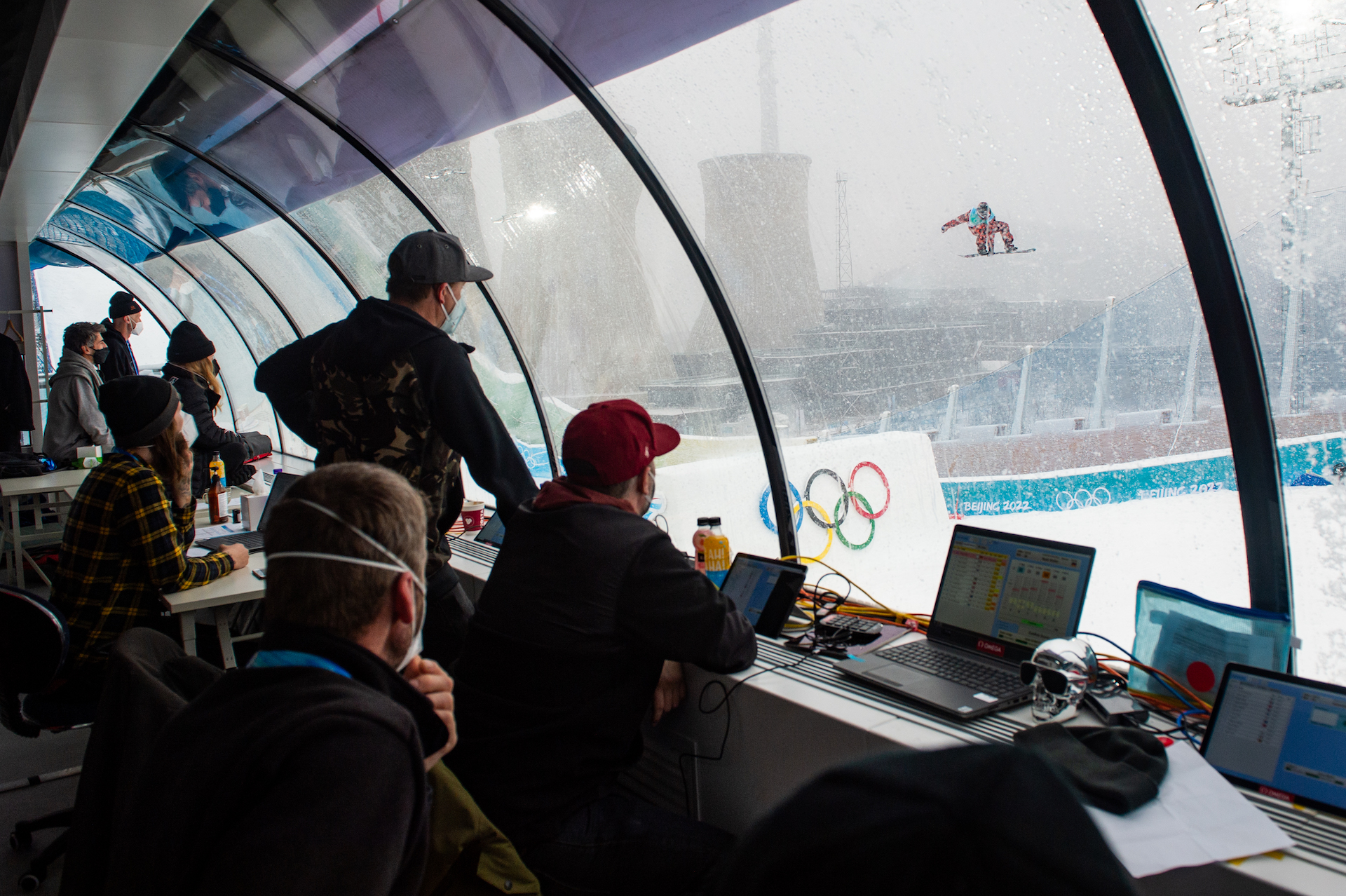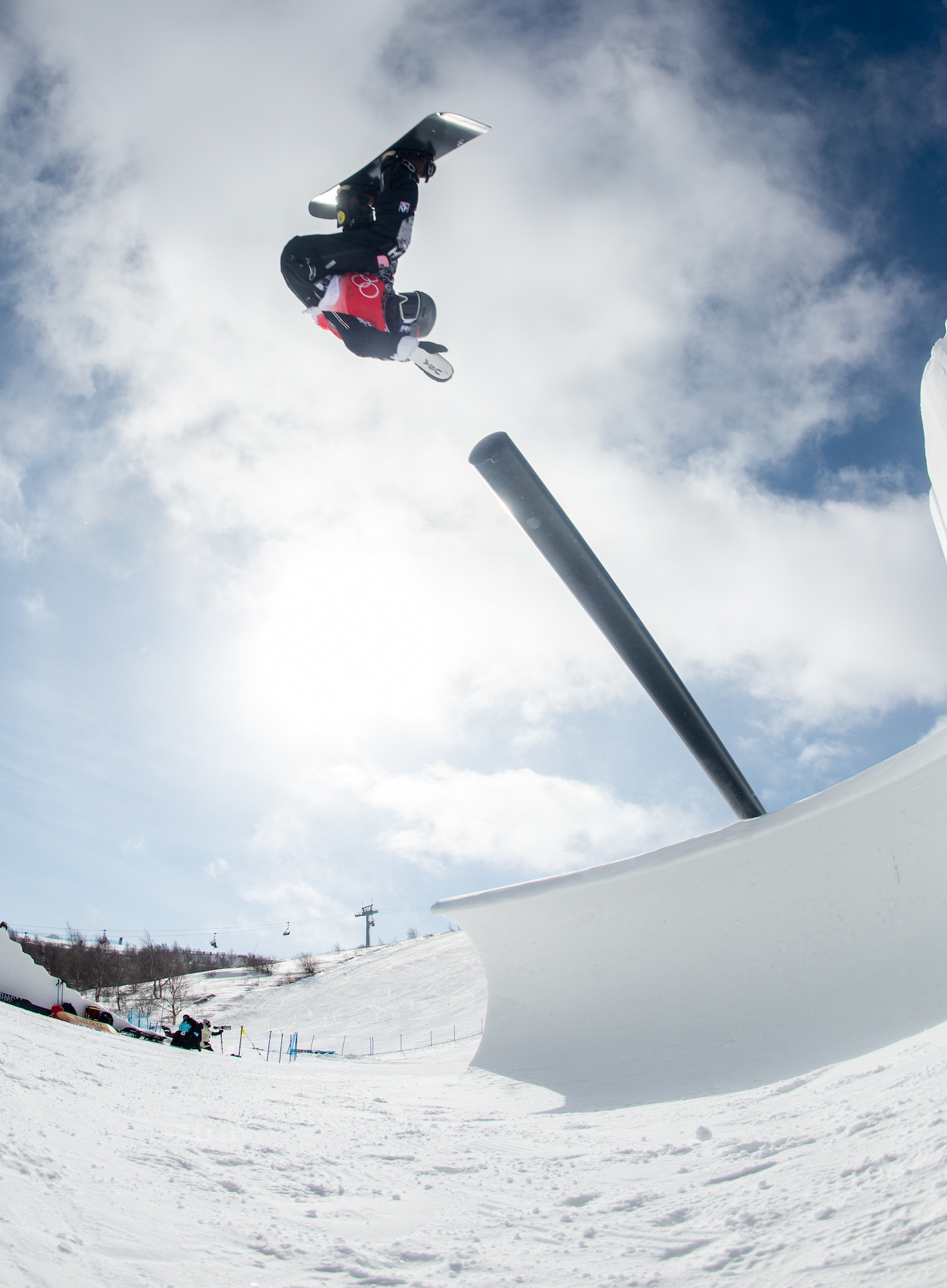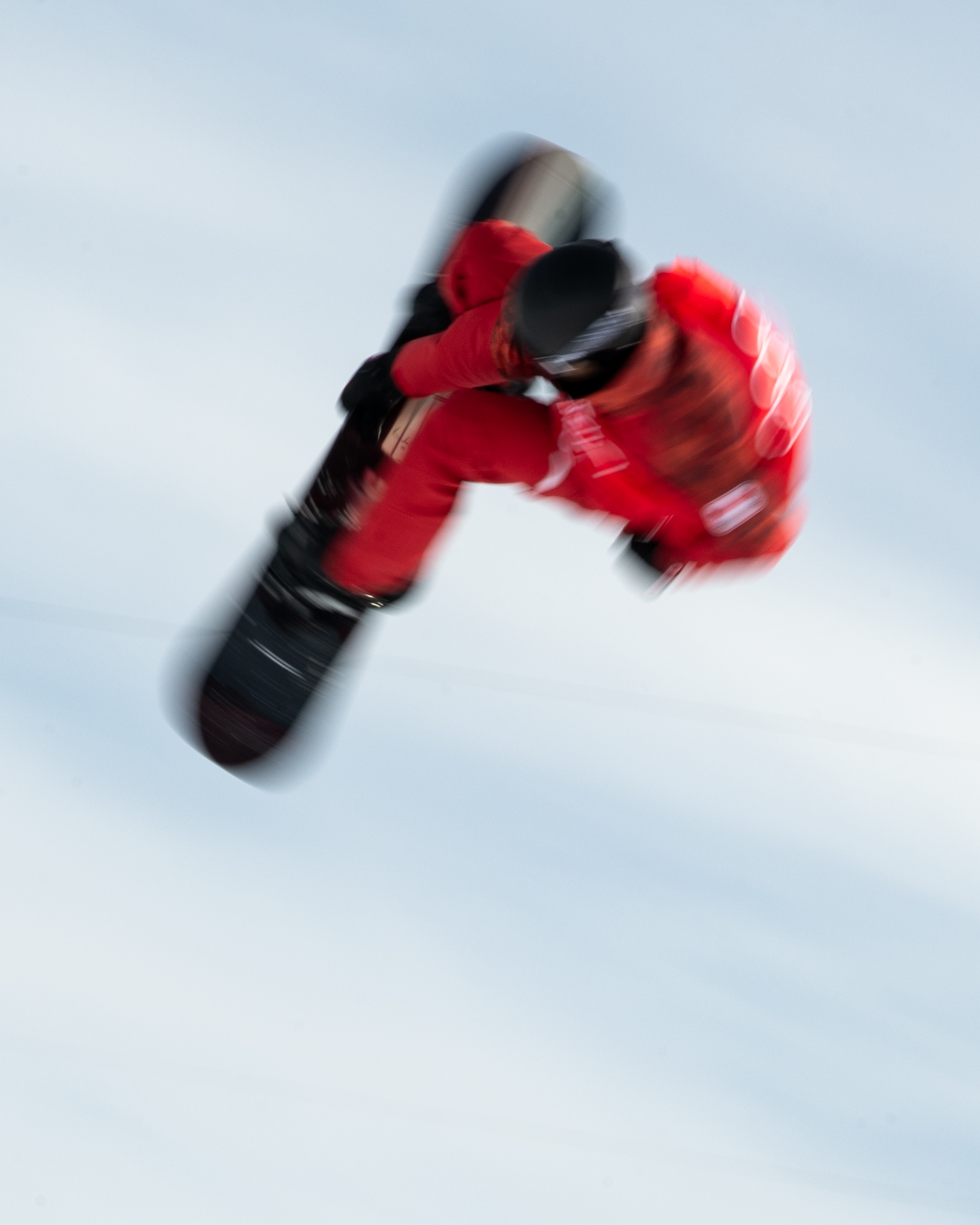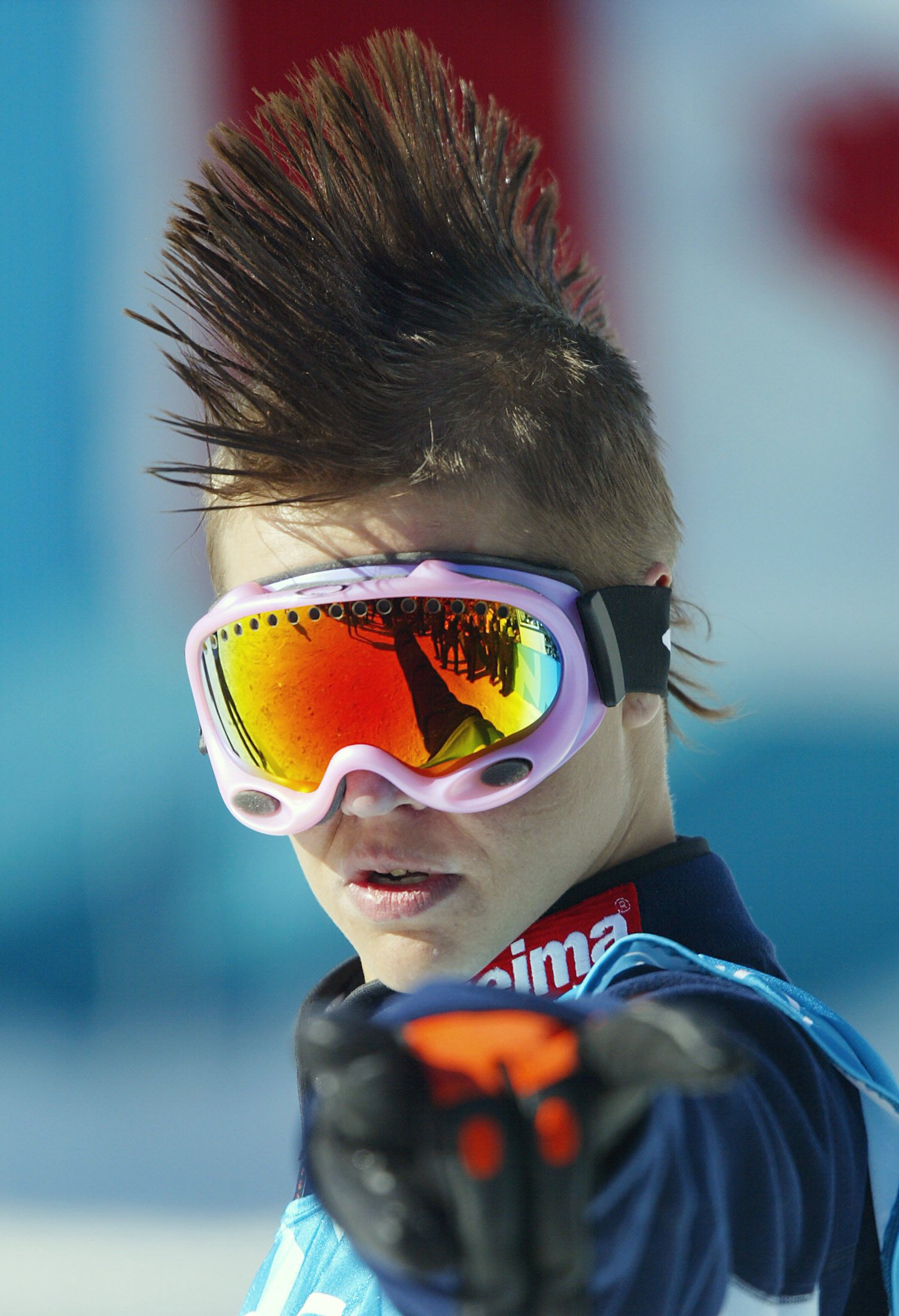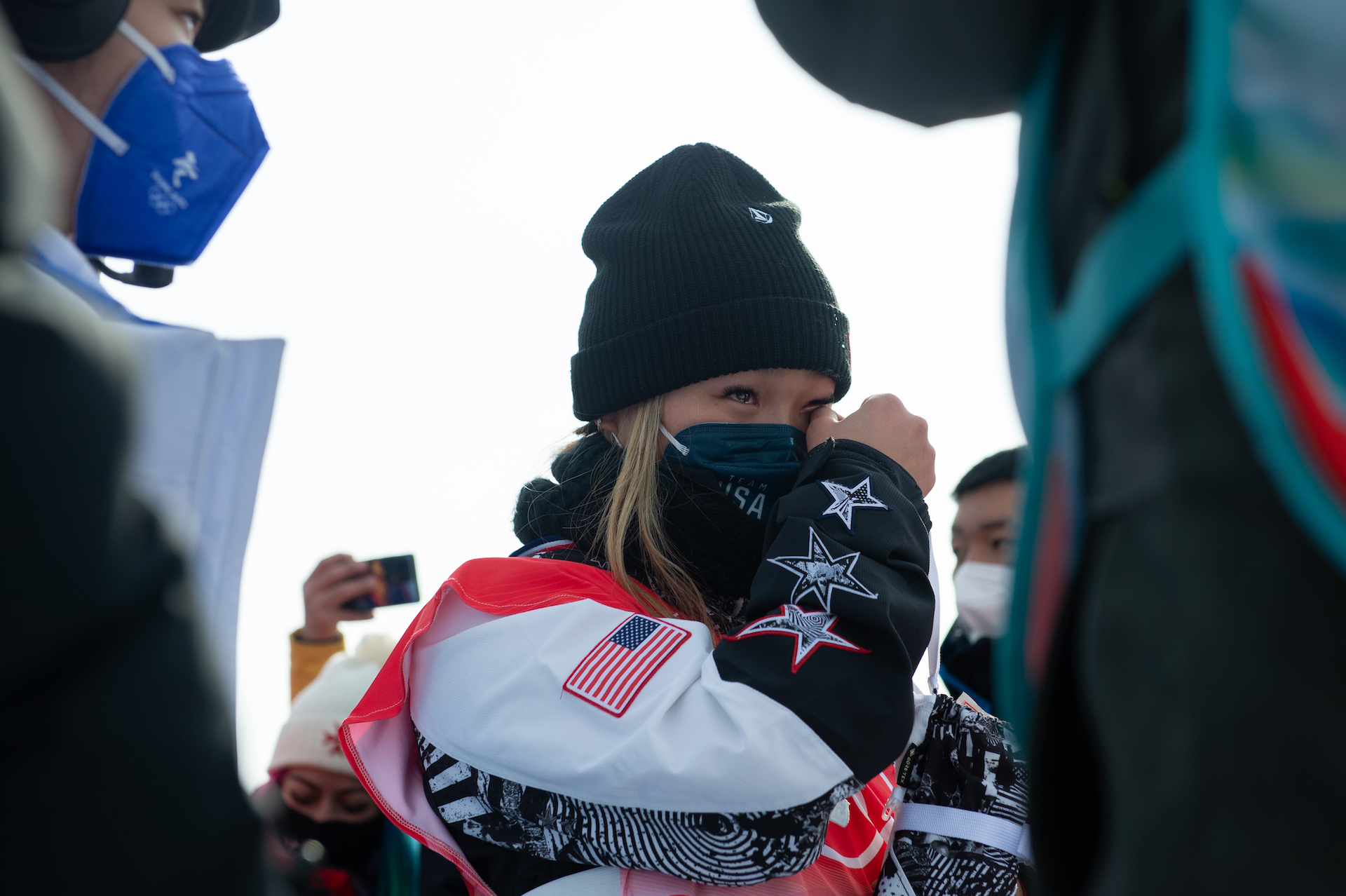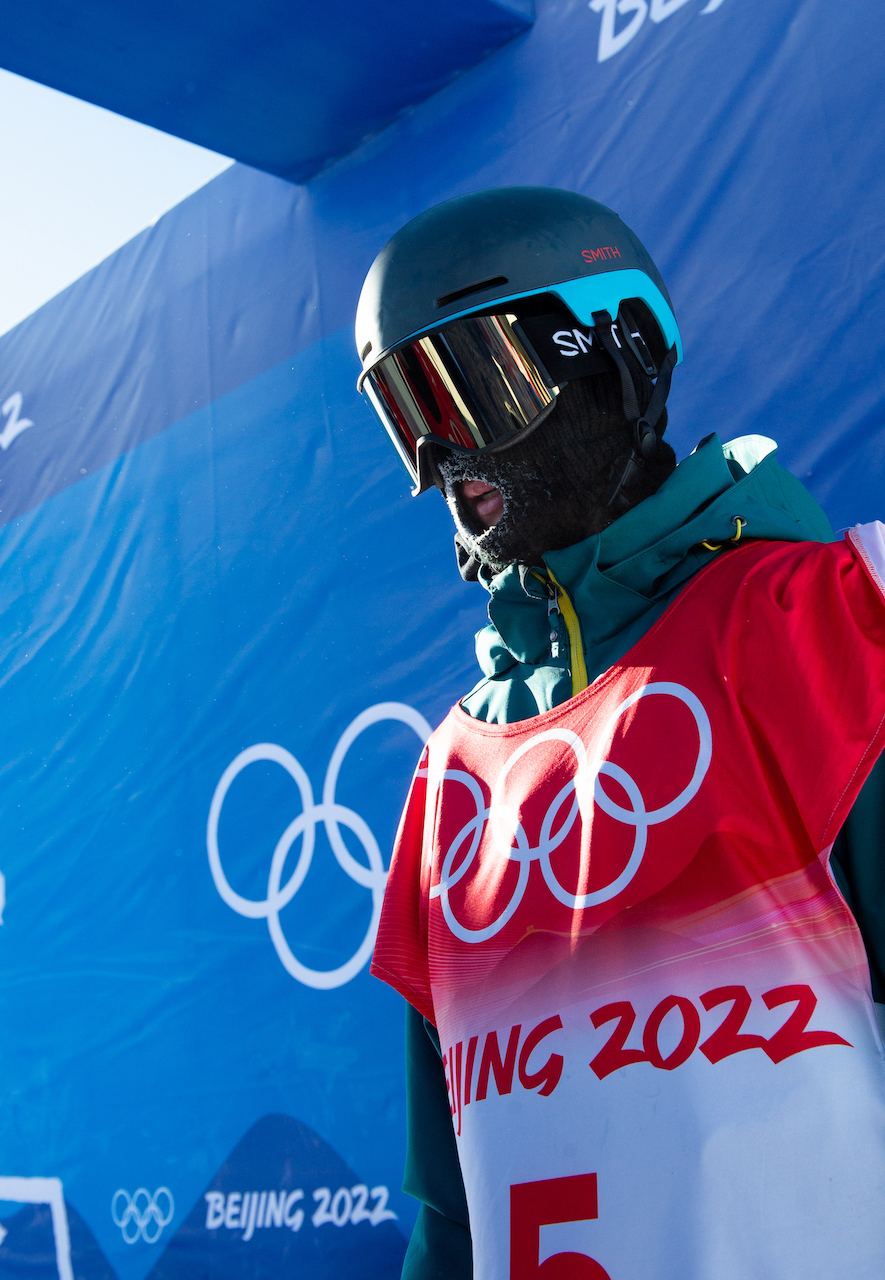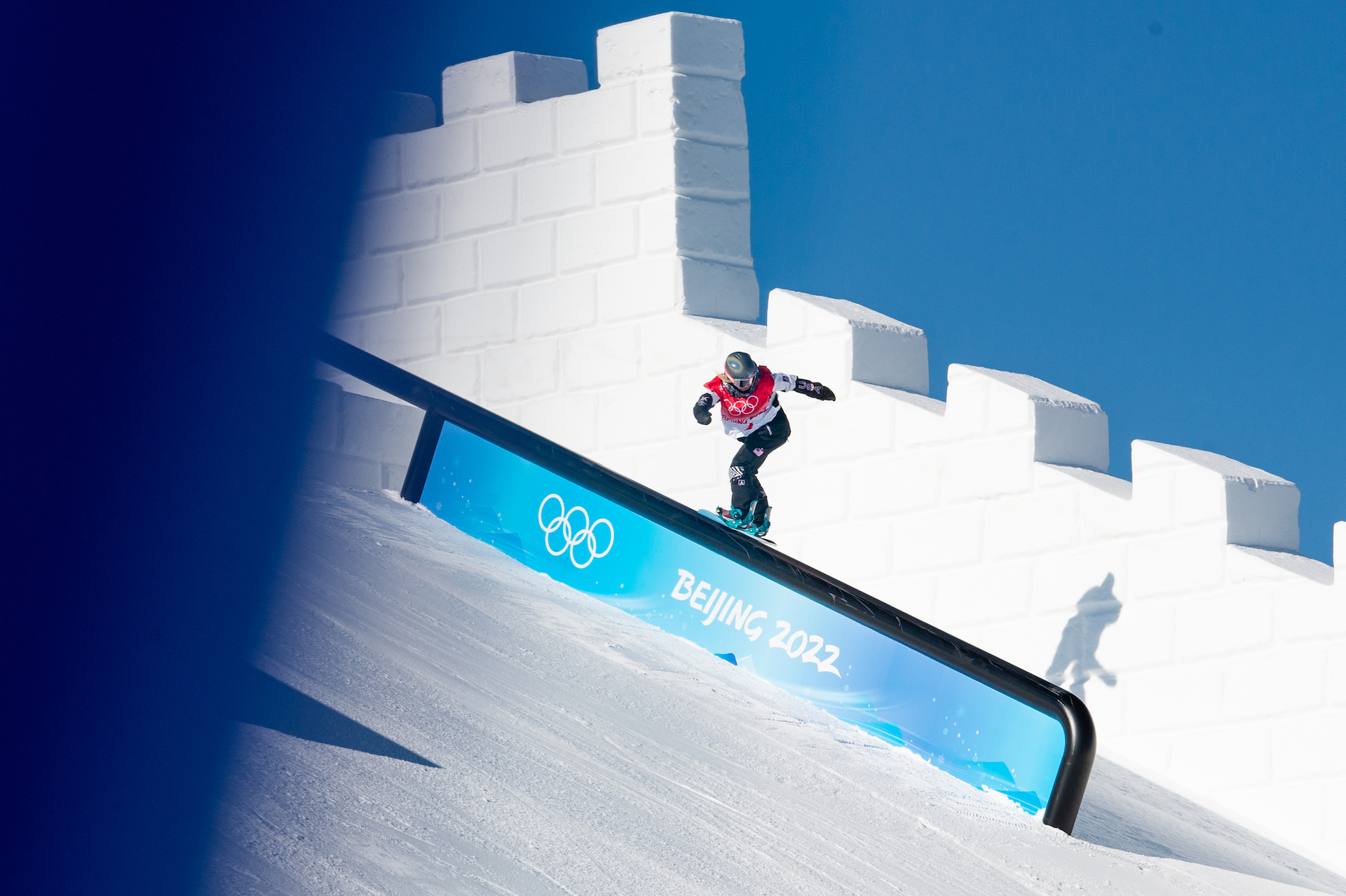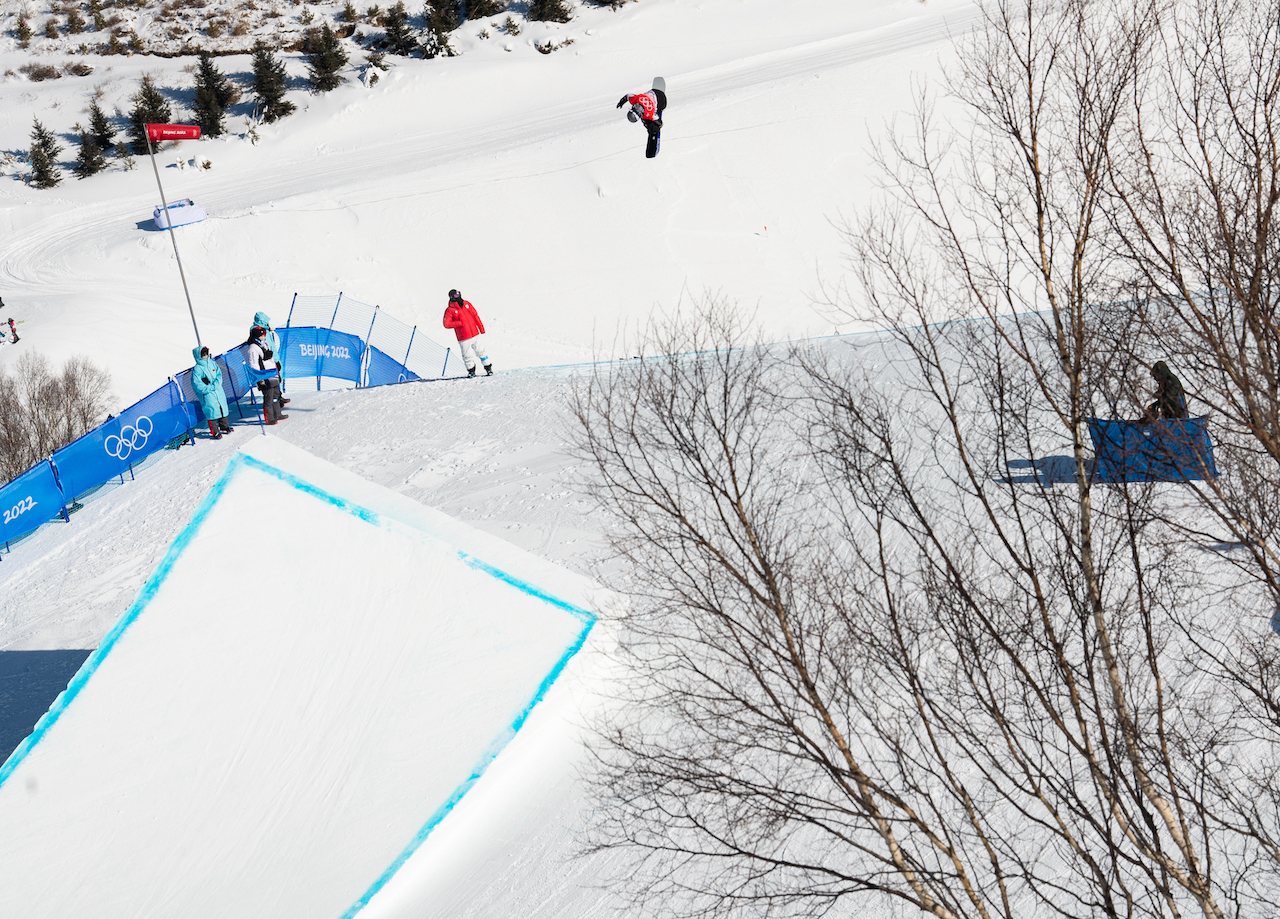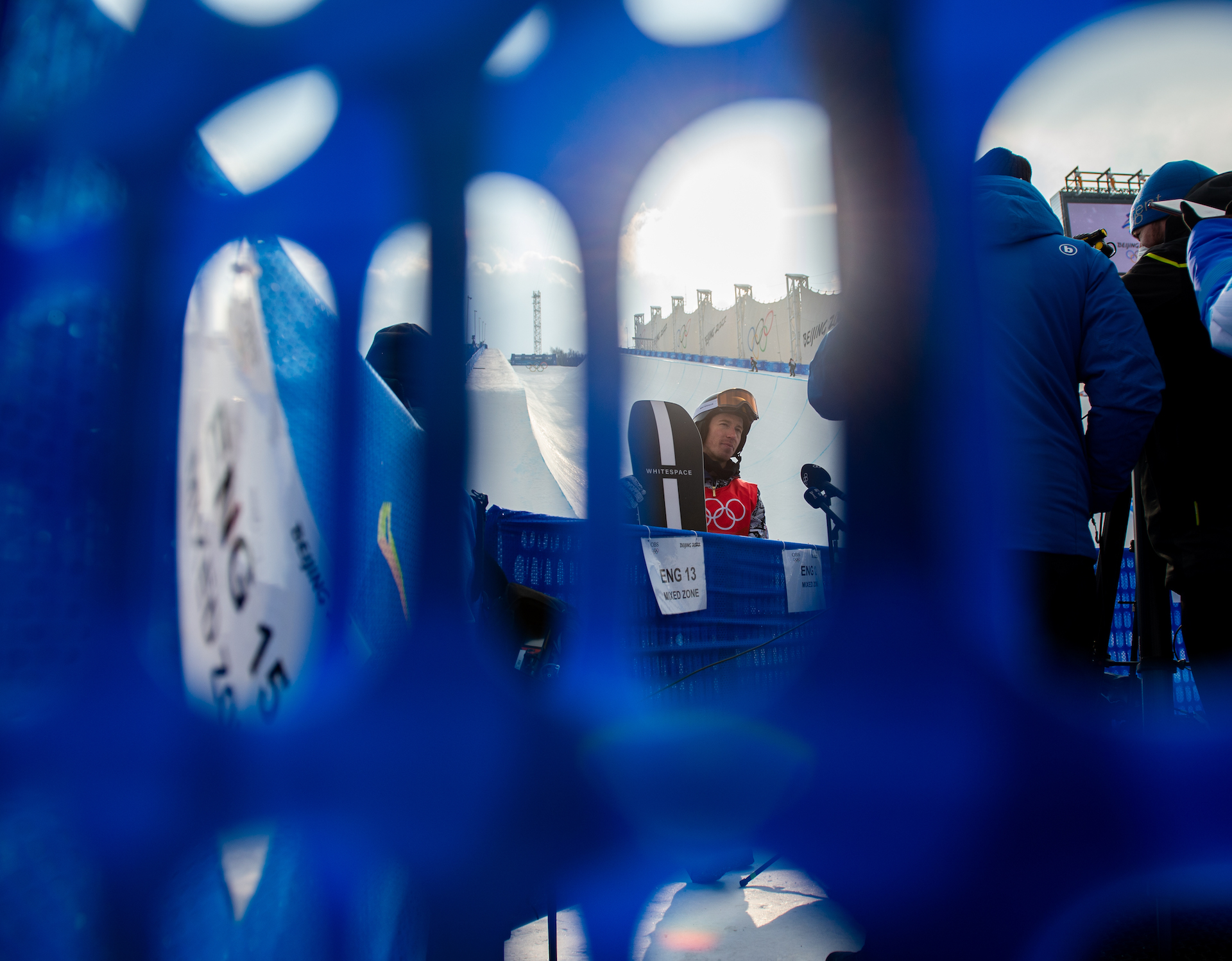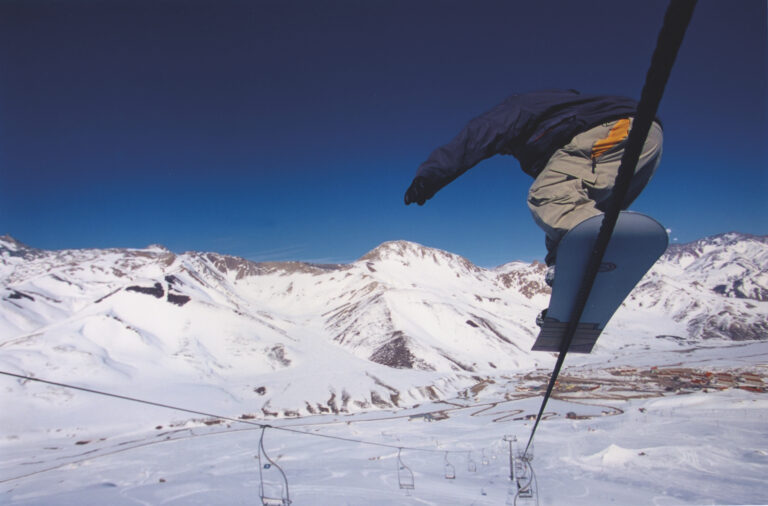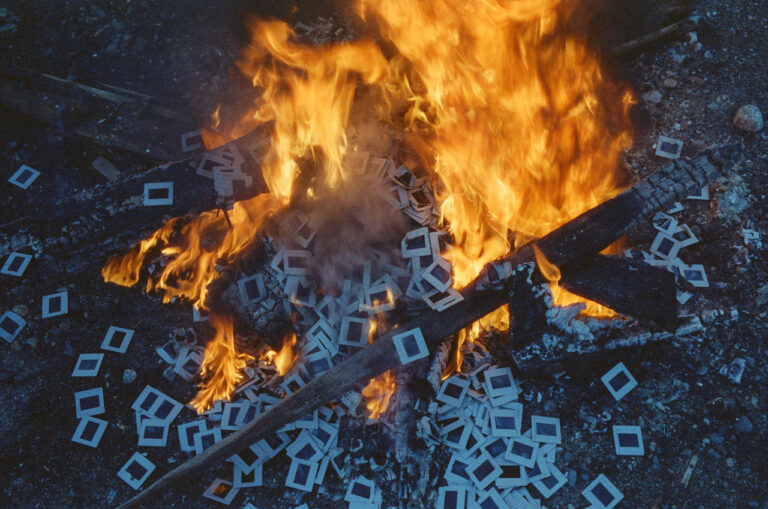Words: Tristan Kennedy
It took fewer than five seconds for Gaz Vogan to realise there’d been a horrible mistake. Along with his fellow snowboard judges, Vogan had just submitted his scores for Max Parrot’s second run in the Olympic men’s slopestyle final – resulting in a combined total of 90.96, enough to put the Canadian rider in first place. “Then, literally two seconds later, we saw the same replay that the whole world saw,” says Vogan. “We were like, ‘Shit, shit, shit.’”
“In a so-called ‘free sport’, the idea of ranking one rider above another has always felt a bit awkward”
The replay angle in question clearly showed that Parrot had grabbed his knee, not his board – an execution error almost on a par with a fall. But there’s no VAR, TMO or Hawkeye in competitive snowboarding. Unlike football, rugby or tennis, there’s no mechanism for reviewing or retracting a decision after it’s been submitted to the Olympic Broadcast Service (OBS) for transmission. The judges were told that there was nothing that could be done. “I remember turning to Beggsy,” Vogan says, referring his fellow judge, Adam Begg of Australia, “and saying: ‘Shit is about to hit the fan.’”
Vogan was not wrong. On the BBC, NBC, and the other networks beaming the contest into millions of homes, the opprobrium was almost instant. Ed Leigh’s remark to Tim Warwood – “We can’t shy away from this Tim, there is a glaring judging error putting Max Parrot in gold” – was one of the more measured responses. And by the time Vogan, Begg, and their colleagues stepped out of the judging booth and switched them on, their phones were on fire.
“It’s amazing to me that some people would go and search out emails, or personal telephone numbers, just to send shit to the judges,” head judge Iztok Sumatic told Whitelines in an exclusive interview after the event, “but they did”. On Instagram, Twitter and TikTok, the pile-on continued. The fact that the rider who finished second, Su Yiming, was Chinese, meant the contest quickly went viral on Weibo too, where ‘patriotic’ users poured petrol on the flames. Sumatic’s explanation – that the issue lay largely with the TV feed, and the pressure put on judges to submit scores to the OBS’ schedule – was widely reported, including in The New York Times, The South China Morning Post and elsewhere. But that didn’t stop the judges getting death threats.
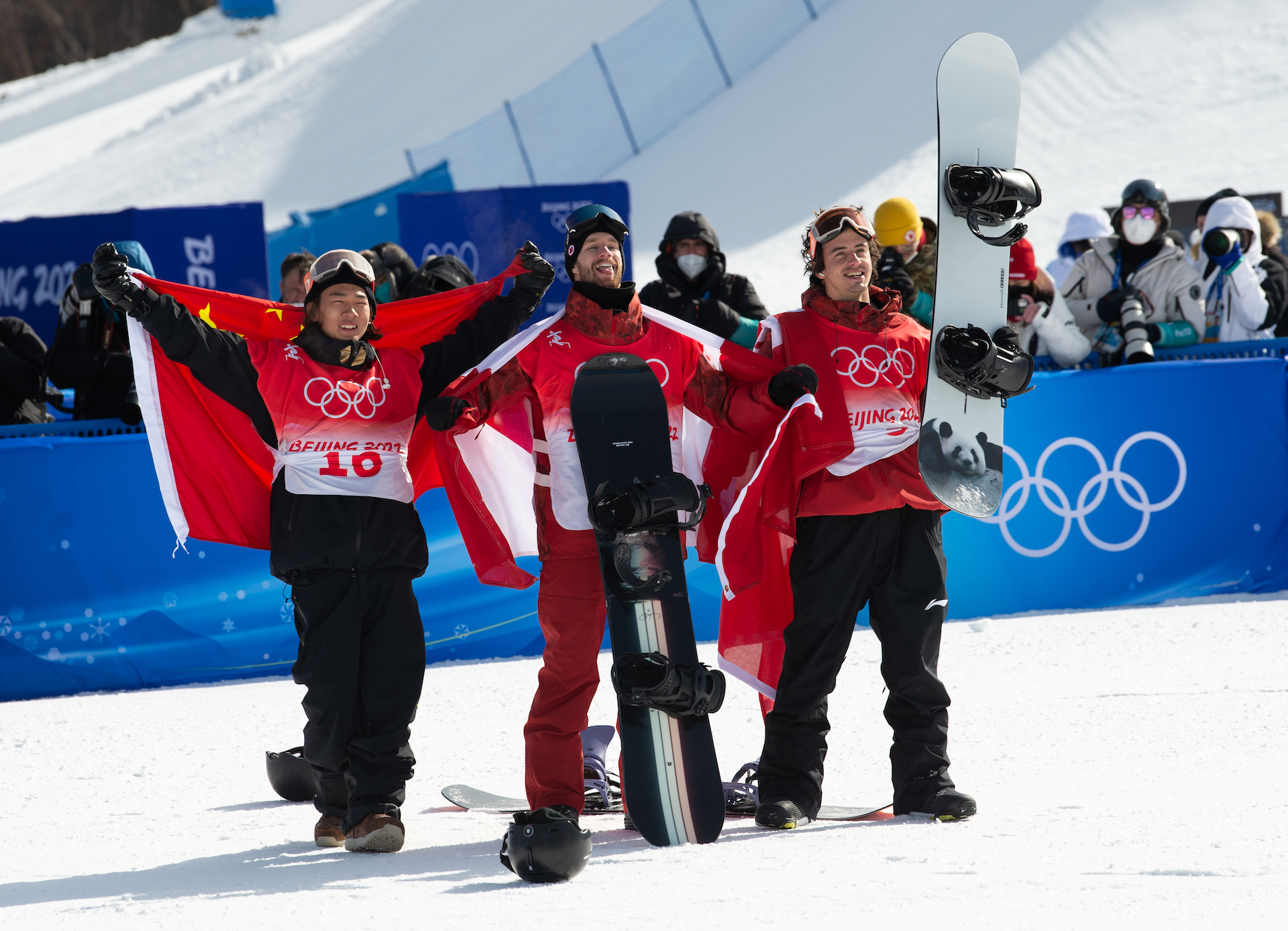
Six months later, the vehemence of the global reaction – or overreaction – to a judgement made in good faith still surprises Sumatic. But in many ways, the internet-amplified shitstorm which he, Vogan and the others found themselves at the centre of, is merely the most extreme example of a problem that has plagued competitive snowboarding since the start: snowboarders have never really been comfortable with the idea of being judged.

